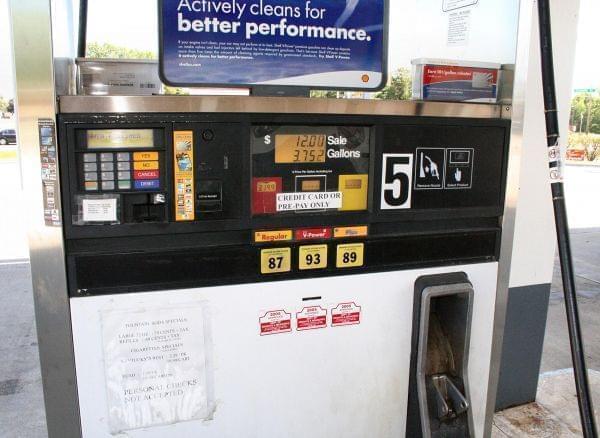Economist: Illinois Gas Tax Hike Could Change Long-Term Driving Habits

Illinois' recent gas tax increase and higher vehicle registration fees could lead to a double whammy for some drivers, that's according to an economics professor at Illinois Wesleyan University who says some will drive less as a result. Tysto/Flickr via Creative Commons
An economist predicts Illinois' 19-cent-per-gallon gas tax hike will cause many Illinoisans to drive less, even if we haven't changed our habits just yet.
“The long-term sensitivity is much greater and we cut back a lot more in the long run than in the short run,” said Mike Seeborg, an Illinois Wesleyan University economics professor.

Illinois Wesleyan University economics professor Mike Seeborg said Illinois' recent gas tax increase won't likely cause driving habits to change in the short term.
Seeborg added once motorists feel the effects of paying more at the pump in the coming months or possibly years, they will likely start to make changes to reduce their need for fuel.
“People who are deliberating whether to keep that second car and facing the different additional expenses, they get rid of the second car or maybe shorten your trips a little bit to save expenses,” he said.
Seeborg projected the extra 19 cent-per-gallon tax will cost the typical motorist an additional $100 per year, which could become a tipping point for some families, since the vehicle registration fee also went up $50.
“If you have two vehicles, then you are paying an additional $200 in gas taxes and an additional $100 in registration fees for a total of $300,” Seeborg said. “That would take quite a hit on a low-income family.”
Seeborg said many companies that have to budget for higher transportation costs will pass that cost on to their customers.
The gas take hike was a key component to Gov. J.B. Pritzker's $45 billion capitol plan to repair much of the state’s roads and bridges.
Seeborg said while the higher taxes will help pay for much-needed infrastructure repairs, he's concerned it will raise Illinois' tax burden that was already among the highest in the country.
He said that could be a contributing factor in Illinois’ outmigration in recent years.

